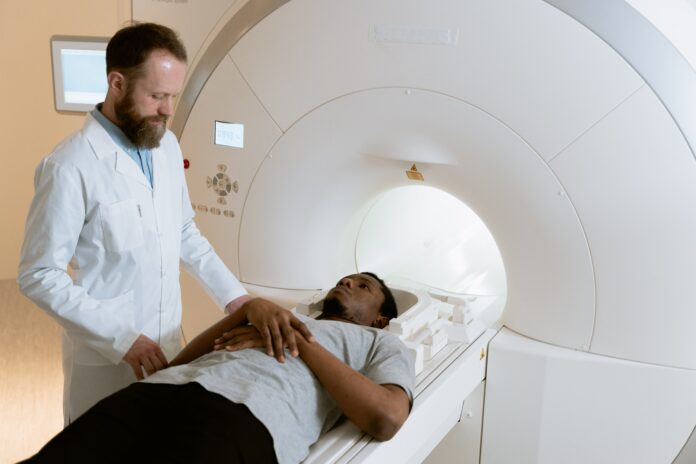When patients come to the intensive care unit (ICU) with a brain injury, doctors often can’t predict how they’ll recover. Surprisingly, in the ICU, as many as 70% of deaths occur because healthcare professionals decide to stop life support for patients with severe brain injuries. That’s why it would be helpful if patients’ neurological outcomes could be predicted early on, so that medical resources could allocated to the patients that need them the most.
To date, task-based functional magnetic resonance imaging has been an effective tool for assessing consciousness in patients with severe brain injury. This method requires patients to complete a task inside a functional magnetic resonance imaging (fMRI) machine; therefore it demands active participation from the patient, which is not always feasible for patients with severe brain injuries.
On the other hand, resting-state fMRI (rsfMRI) has gained significant attention as a less-demanding alternative for patients with severe brain injuries — this technique requires the patient to simply lie in an fMRI machine while their brain is scanned. Initially, healthcare professionals didn’t use rsfMRI because they weren’t sure how to tell if patients were conscious. But as neuroscience has advanced, researchers have figured out that certain brain networks show signs of consciousness, even when patients aren’t fully responsive.
To build on these advancements, a Ph.D. student from Western University, Matthew Kolisynk, recently led an investigation testing whether rsfMRI could predict neurological outcomes of unresponsive patients with acute severe brain injury. This study was published in the Journal of Neurology.
The researchers used a machine learning technique to analyze the rsfMRI data collected when patients first arrived in the ICU. Then, six months later, the patients’ actual neurological conditions were assessed using a trusted scale to determine if they had good or poor neurological outcomes. The machine learning results were compared to these real-life outcomes to see how accurate they were.
The study included 25 patients aged between 18 and 80 years old, 10 of whom were placed in the good outcome group and 15 who were placed in the poor outcome group. The machine learning approach correctly predicted that eight out of the 10 patients would have good outcomes and correctly predicted that 12 out of the 15 patients would have poor outcomes.
The results of this study suggest that rsfMRI could be a valuable addition to the tools healthcare professionals use to predict how patients with severe brain injuries in ICU will recover. In particular, this method seems to provide more accurate and personalized assessments. What’s really exciting is that it showed an 80% success rate in predicting good neurological recovery, which is better than the standard tests that are usually used to check if a patient is conscious (e.g., an eye test).
While these findings are promising, it’s important to note that more research is needed, including larger studies within different hospitals. Still, this study is a significant step forward, and it provides hope to both patients and families with severe brain injuries as well as healthcare professionals in the field.






































